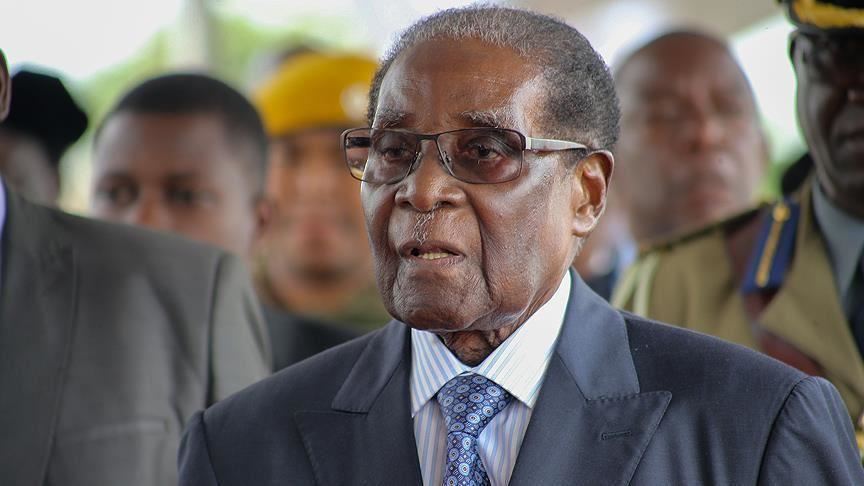
HARARE, Zimbabwe
Former Zimbabwean President Robert Mugabe died in a Singapore hospital on Friday at the age of 95.
Mugabe was born on Feb. 21, 1924 in Kutama, northwest of the then Salisbury (now Harare), in what was then Rhodesia before the country was renamed Zimbabwe after independence 39 years ago.
The former guerrilla leader turned politician swept to power in the 1980 elections. He served as prime minister in 1980-1987 and then as president in 1987-2017.
Brought up at Kutama Mission, Mugabe was enrolled at the Fort Hare University in South Africa in 1948, where he pursued a degree in history and English.
After teaching in Ghana, Mugabe returned to Rhodesia in 1960 and was arrested for his nationalist activities in 1964. He spent the next 10 years in prison camps or jail.
In Ghana, Mugabe married a Ghanaian woman named Sally Hayfron, who died of a kidney disease in 1992. Four years later, he got married to Grace, who almost became his successor before he was overthrown from power in November 2017.
Mugabe remained Zimbabwe’s leader since the country’s independence in 1980 until he was toppled from power in a military coup two years before his death.
Mugabe’s 37-year rule has been widely criticized for human rights abuses in the country, election rigging over the years, and destruction of the country's once flourishing economy.
Mugabe -- who was a former school teacher, a holder of seven university degrees -- rose to fame after he led a guerrilla war against the British colonial government in his country.
For his role in leading the guerilla war, Mugabe was jailed by the colonial government after he was accused of making a "subversive speech" in 1964.
In 1974, Mugabe was released and he did not take a sabbatical in his war against the country’s colonial government.
In the same year, he crossed to neighboring Mozambique, where he led a bloody war against the settler regime, followed by a ceasefire in 1979. Subsequently, first majority polls were held in the country in 1980, which he resoundingly won, becoming the first Prime Minister of independent Zimbabwe.
However, Mugabe became notorious for unleashing a bloody crackdown that killed over 20,000 Ndebele people in the country’s Matabeleland regions and the Midlands Province by labelling them dissidents linked to his political rival back then, the late Joshua Nkomo.
The crackdown on the Ndebele people by Mugabe ended with the signing of the Unity Accord between the parties of Mugabe and Nkomo in 1987, paving the way for Mugabe to assume the charge as president while abolishing the office of prime minister.
Since then, Mugabe has won a series of contentious elections that critics allege have been rigged, including one in 2008 which he lost to Morgan Tsvangirai, triggering political violence that claimed hundreds of lives.
Over the years, Mugabe's rule culminated in a massive economic demise for the southern African nation, a country that was once one of Africa's richest countries.
Anadolu Agency website contains only a portion of the news stories offered to subscribers in the AA News Broadcasting System (HAS), and in summarized form. Please contact us for subscription options.

